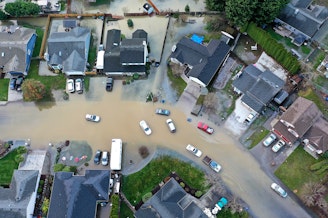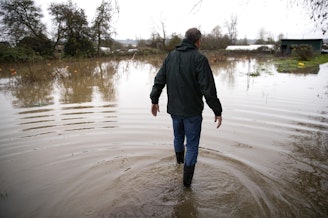Federal Plan Could Reclassify Hanford Nuclear Waste — And Leave it in the Ground
A new proposal from the Trump administration could dramatically change the way the government cleans up radioactive tank waste at the Hanford Nuclear Reservation in Washington.
In fall 2018, the Department of Energy released a proposal to downgrade the rating of some of the country’s high-level radioactive waste to a lower status. But critics say it could be bad news for places like Hanford.
The Hanford site in Washington is already “one of the most contaminated nuclear waste sites in North America," according to the U.S. Government Accountability Office. Cleaning up the radioactive waste stored there is an ongoing process, and a federal report due out later this month estimates it will cost more than $240 billion to clean up the site.
Oregon Democratic Sen. Ron Wyden and Washington state Democrats Gov. Jay Inslee and Sens. Patty Murray and Maria Cantwell have all expressed major concerns with the federal plan.
Reporter Anna King covers Hanford and spoke to OPB "Weekend Edition" host John Notarianni about what’s at stake for waste reclassification.
Sponsored
John Notarianni: How much of the nuclear waste at Hanford could be subject to this reclassification?
JN: What could waste reclassification mean for the Hanford cleanup?
JN: What are the downsides of leaving some of that tank waste in the ground?
JN: If some of the Hanford waste was to be recategorized, could that potentially speed up the cleanup? What long-term consequences could the decision have?
JN: Where does this issue stand today?
Sponsored
Use the audio player above to hear the full conversation from OPB’s “Weekend Edition.” [Copyright 2019 EarthFix]


